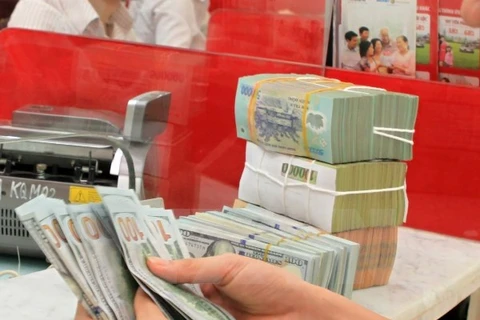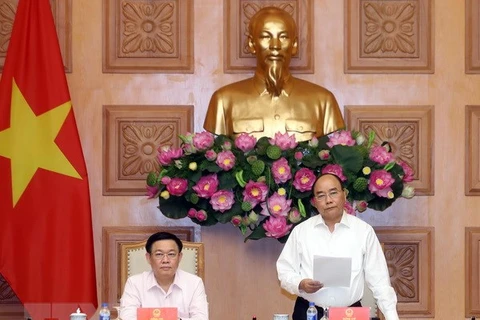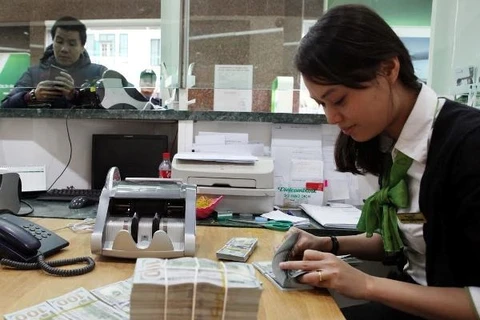Hanoi (VNA) – The US-China trade war and the fall in the Chinese Yuan post big impacts for the world economy, including Vietnam. Some experts have said Vietnam should employ flexible exchange rate policies in response.
A recent report from the Vietnam Institute for Economic and Policy Research (VERP) under the Hanoi National University noted that the US and China are two trade partners of special importance of Vietnam.
The US is Vietnam’s largest export market where one fifth of total export revenue comes from, while a quarter of imported goods to Vietnam are from China, according to the report.
Currently, the VND price depends on the fluctuation of the USD. When the Chinese Yuan’s price drops, the trade balance of Vietnam will be seriously affected as cheaper Chinese goods will flood the domestic market.
Nguyen Duc Thanh, VERP Director said Vietnam should pursue flexible policies on exchange rate, which means the country should reduce the price of the VND compared to USD, but not as strong as the depreciation of the Chinese Yuan.
Thanh said that as a big importer of Chinese materials for processing and exporting, the adjustments in the exchange rate will benefit both those importing materials from China and those exporting goods to the US. Therefore, taking advantage of the two giant markets will help improve the production and trade balance of Vietnam.
According to financial expert Nguyen Tri Hieu, it is necessary to devalue the VND price by 3 percent for the whole year, noting that the VND has lost more than 1 percent since the beginning of the year.
Hieu asserted that maintaining a stable exchange rate is not profitable in the context of China devaluing its currency.
Since the beginning of 2018, the reference VND/USD exchange rate has increased by about 1.1 percent compared to the beginning of the year, while that of commercial banks rose about 1.4 percent.
Specialists commented that the rise is not yet worrying and there is still room for the VND/USD exchange rate to increase.
However, many experts are concerned that the decline in VND price will lead to changes in interest rate for VND loans and risks of higher inflation.
VEPR research also warned that amidst the upturn trend of foods and fuels, to keep the average inflation of 4 percent, it is necessary to exert more efforts, especially in tightening monetary policies by the State Bank of Vietnam (SBV).
Thanh suggested the Government and SBV act quickly to control inflation to avoid problems in the market such as the fluctuations in exchange rate or interest rate.
According to the SBV, it has bought about 11 billion USD in the first half of 2018, raising foreign currency reserve to a record height of 63.5 billion USD.
The bank also affirmed that with the high reserves, it is ready to pump money into the market to ensure stability in foreign currency market.
It has also taken steps to stabilise the market by lower the selling price of USD at its transaction centre.-VNA
VNA
























